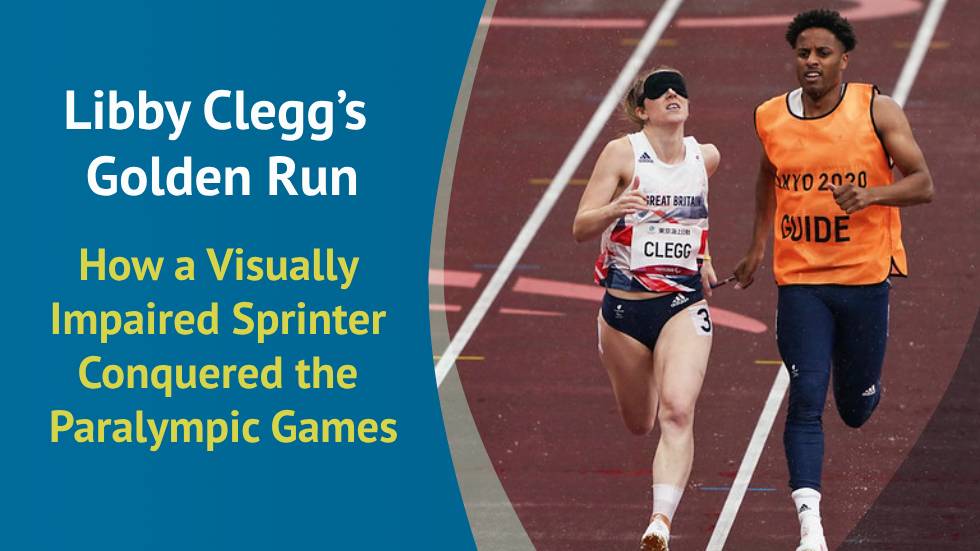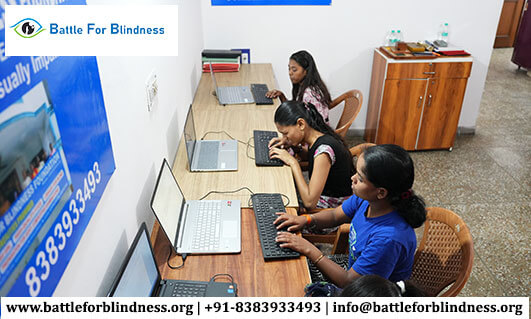
Libby Clegg’s story is one of resilience, determination, and breaking barriers in the world of track and field. A visually impaired sprinter from the UK, Libby has defied expectations time and again, achieving success at the highest level of Paralympic sports. Her journey from a young athlete with deteriorating vision to a Paralympic champion, earning gold medals in the T11 100m and 200m sprints at the Rio 2016 Paralympics, is a testament to her incredible spirit.
Early Life and Vision Loss
Born in 1990 in Cheshire, England, Libby Clegg was diagnosed with Stargardt’s disease, a degenerative eye condition that causes progressive vision loss. By the time she was nine, her central vision had deteriorated significantly, leaving her legally blind. While the condition could have limited her, Libby chose to focus on her love for sports.
From a young age, Libby showed exceptional athletic talent. She took up sprinting, a sport that requires precision, speed, and timing—all of which became increasingly difficult as her vision worsened. Yet, her passion for running only grew stronger. With the support of her family and coaches, Libby learned to adapt, refusing to let her visual impairment stand in the way of her dreams.
Early Success in Paralympic Sports
Libby’s introduction to the world of Paralympic sports came at an early age. She competed in her first Paralympic Games in Beijing in 2008, where she won a silver medal in the T12 100m sprint. This achievement marked the beginning of her journey to international fame. With her unique running technique and guide runner, Libby quickly became one of the most promising visually impaired athletes in the UK.
Despite her success, Libby continued to face challenges. Running with limited vision requires immense trust between the sprinter and their guide runner. They must work as a team, with the guide helping to keep the athlete on track while maintaining speed and coordination. Libby’s ability to form strong bonds with her guide runners, including Chris Clarke, played a key role in her rise to the top.
The Road to Paralympic Glory
After the success in Beijing, Libby’s career continued to flourish. She won numerous medals in various international competitions, including the World Championships and European Championships. However, it was at the 2016 Rio Paralympics where she truly made her mark.
Competing in the T11 category (for athletes with the most severe visual impairments), Libby delivered stunning performances in both the 100m and 200m sprints. She won gold medals in both events, setting new personal bests and securing her place as one of the world’s fastest Paralympians. Her victory in Rio was not only a personal triumph but also a significant milestone for visually impaired athletes around the world.
The T11 classification requires athletes to run with a guide due to their lack of vision, and the teamwork between Libby and her guide was extraordinary. The pair ran in perfect sync, highlighting the importance of trust, communication, and coordination in their success. Their chemistry on the track allowed Libby to reach her full potential and achieve gold on the world’s biggest stage.
Overcoming Setbacks and Continuing to Inspire
Like many athletes, Libby’s career has not been without its setbacks. She has faced injuries, including a torn calf muscle that forced her to withdraw from the 2013 World Championships. Despite these challenges, Libby has consistently shown her ability to bounce back stronger than ever. Her determination and focus have earned her not only medals but also the admiration of fans and fellow athletes alike.
In addition to her sporting achievements, Libby has become a role model for others with disabilities. She advocates for greater inclusion and accessibility in sports, inspiring the next generation of athletes to pursue their dreams, regardless of the obstacles they may face. Her openness about her struggles and successes has made her a powerful voice in the Paralympic movement.
Tokyo 2020 and Beyond
Libby Clegg’s journey continued at the Tokyo 2020 Paralympics, where she competed in the 200m sprint and made her debut in the 4x100m mixed relay. Her participation in Tokyo was especially significant, as she had recently become a mother and had to balance her training with the demands of raising a child. Though she faced fierce competition, her determination to continue pushing her limits was evident, as was her commitment to breaking barriers in the sport she loves.
While her performance in Tokyo may not have resulted in more gold medals, Libby’s presence on the Paralympic stage remains a source of inspiration. She has shown that athletes with disabilities can achieve greatness through hard work, resilience, and a never-give-up attitude.
Conclusion: A Legacy of Determination and Triumph
Libby Clegg’s journey is a remarkable story of overcoming adversity and achieving success against the odds. From her early struggles with vision loss to becoming a double Paralympic gold medalist, she has demonstrated that limitations are only challenges to be overcome. Her success in track and field has not only made her a Paralympic icon but also a role model for aspiring athletes worldwide.
Libby continues to inspire through her actions both on and off the track. Her legacy goes beyond her medals; it lies in her ability to inspire others to believe in themselves and their ability to achieve greatness, no matter the obstacles in their path.





